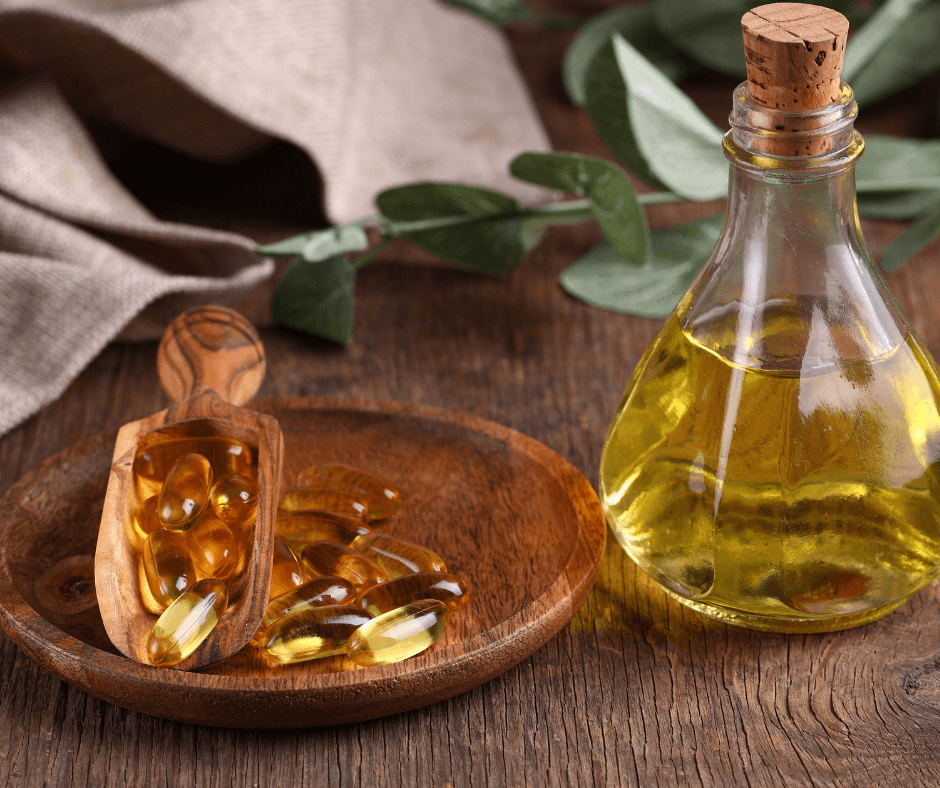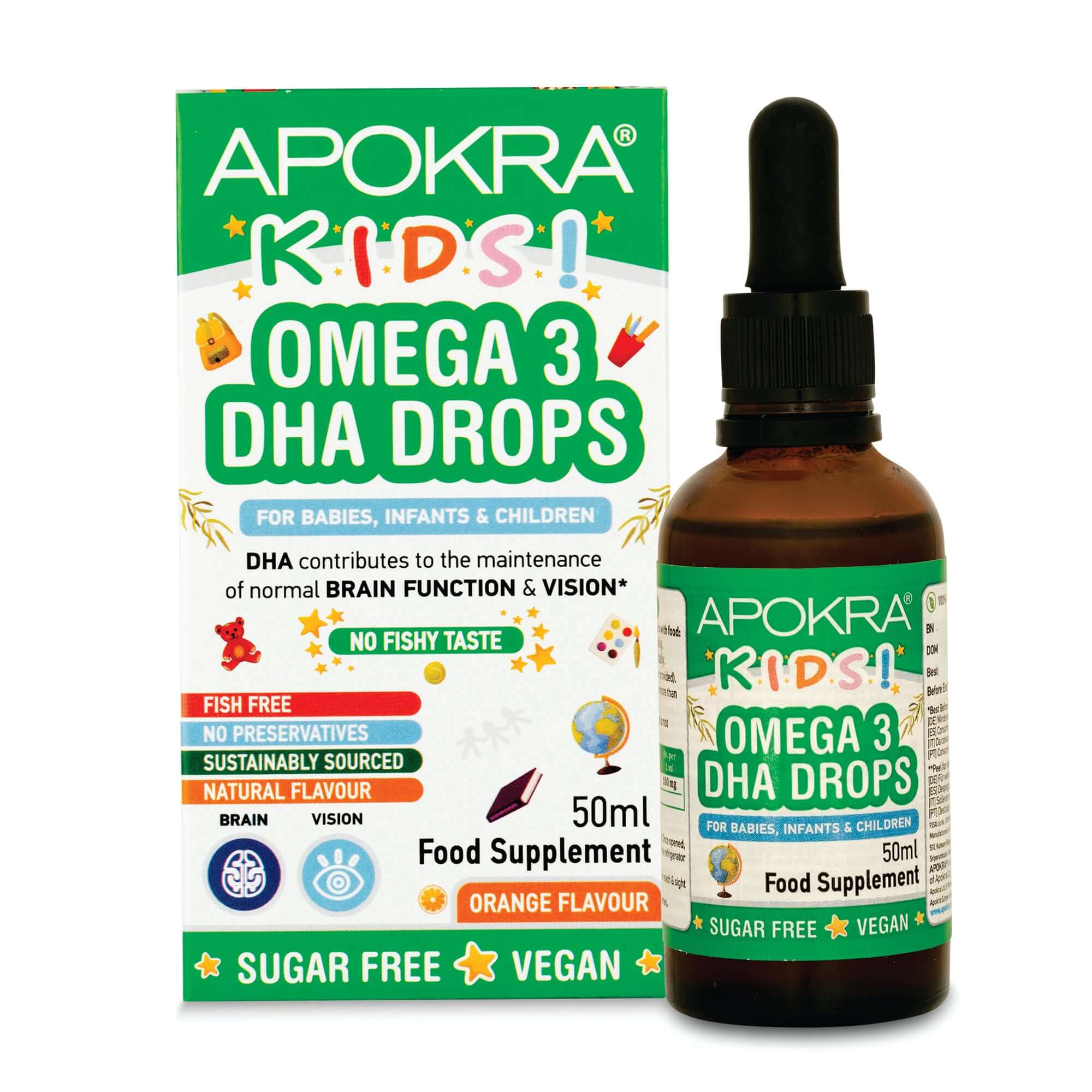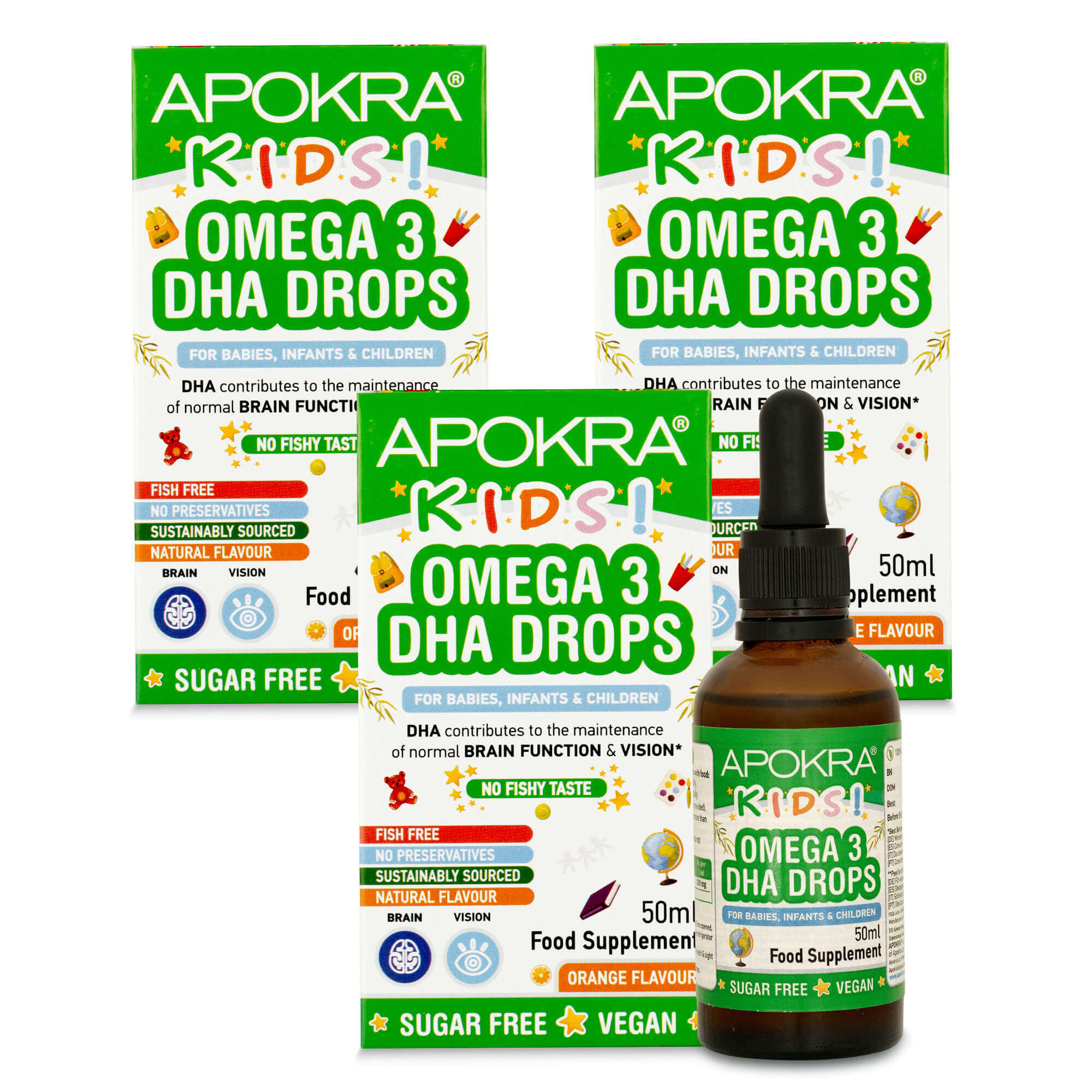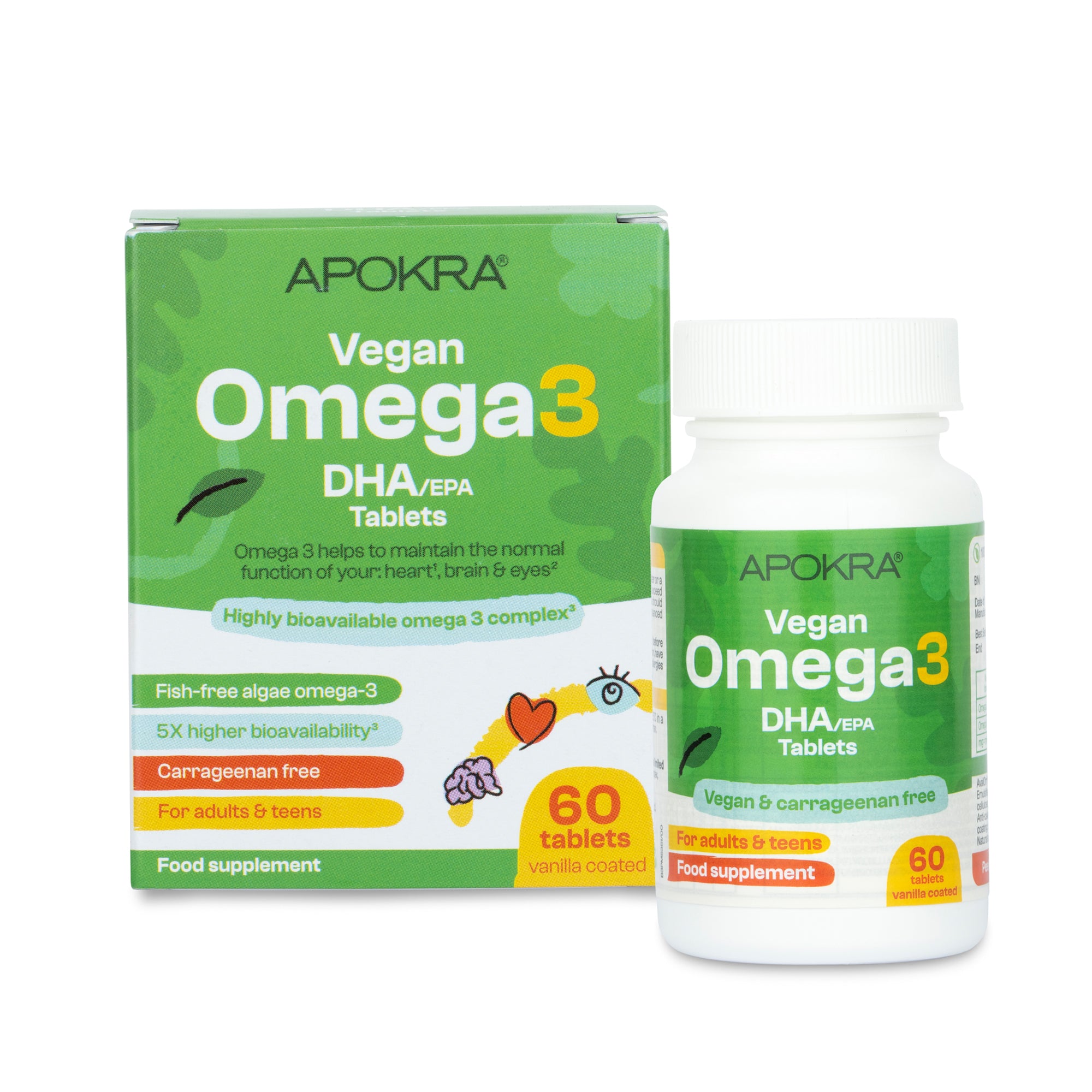Benefits of Omega 3: Everything you need to know

What is Omega-3?
Omega-3 fatty acids are an essential part of your diet and have many important health benefits. Omega 3s are a group of polyunsaturated fats that cannot be made by the human body and must be obtained solely from the diet or supplementation. Polyunsaturated fats are considered the ‘healthy’ type of fats found in foods like olive oil & salmon as opposed to ‘unhealthy’ saturated fats found in foods like bacon & biscuits.
Types of Omega-3
There are three main types of omega-3; ALA (alpha-linolenic acid), DHA (docosahexaenoic acid), and EPA (eicosapentaenoic acid). Out of these, DHA is the most important.
ALA is mainly used for energy production in the body. It can also be converted by the body into EPA & DHA which have a more direct impact on health. ALA is mostly found in plant sources for example flaxseeds. The process of converting ALA into EPA and DHA is less efficient when compared to eating foods that directly provide sources of EPA and DHA.
EPA is associated with aiding good heart health. EPA is found mainly in oily fish but can also be found in marine algae.
DHA is integral to the human body’s make-up and plays a key part in the structure of your brain & eyes. DHA is mainly found in animal products like oily fish, fish oils, and cod liver oil. For this reason, it can be especially difficult for vegans and vegetarians to achieve adequate levels of DHA through diet alone, and supplementation with a vegan omega 3 like marine algae should be considered. DHA is also very important during pregnancy and when breastfeeding, as it supports foetal brain and eye development.
We have developed both Vegan Omega 3 DHA Drops for kids & Vegan Omega 3 DHA Liquid for adults.
What is omega-3 good for?
Omega 3 is an essential fatty acid which our bodies cannot make, so it must come from the diet. There are many omega-3 rich foods to chose from. It is essential to obtain the recommended daily intake due to its role in the brain function, eye health, and skin health to name a few. Obtaining the recommended daily intake is extremely important in pregnancy, breastfeeding and in child development. It plays a pivotal role in normal brain and eye development of the foetus, breastfed children and young children.
Omega-3 vs omega-6
Both omega 3 and omega 6 are required in the diet, when comparing the benefits of omega 3 against omega 6 there are a few key differences to take note of.
Omega-3 is considered the most important omega as it is broken down into the active forms DHA and EPA, of which DHA is considered as the most important. DHA plays the largest role in brain and eye function and development. Omega 6 can be found in oils like olive oil, one of the main fatty acids being linolenic acid, and is considered moisturizing for skin and has shown benefits for hair growth.
10 Benefits of Omega-3
- Contributes to the maintenance of normal vision
- Contributes to the maintenance of normal brain function
- Shown to combat risk factors in heart disease
- Could help improve skin health by keeping skin moisturised and reducing inflammation in conditions like eczema
- Normal development of the brain and eyes during pregnancy, breastfeeding and early years
- Could reduce asthma in Children
- Shown to help with ADHD
- May help with bone and joint health
- May promote good quality sleep
- Shown to have benefits in depression and anxiety
Omega-3 during Pregnancy
There are different guidelines during pregnancy and breastfeeding with regards to omega-3 DHA intake. Too much oily fish can be harmful due to heavy metals that may build up - guidance should be sought from your healthcare professional.
An alternative to fish-based products are plant-based products like marine algae which are free from heavy metals and safer when compared to fish/fish oil consumption. Studies have shown that prenatal DHA has a positive impact on children’s development including better social and verbal intelligence and also reduces the risk of giving birth prematurely.
It is also very important for pregnant women to ensure that they are getting sufficient levels of omega-3 in their diets, as DHA contributes to normal foetal brain and eye development. It has been shown that pregnant and breastfeeding women with bolstered levels of omega 3 DHA in their diet have children with higher intelligence and visual acuity.
Omega-3 for adults and children
DHA plays a vital role in the maintenance of brain function and vision in adults & children. Interestingly, it has also been shown to be important in helping to control ADHD & has shown positive benefits in autism. Adequate dietary intake of Omega-3 DHA has also been shown to help mental health.
Read more about the benefits of Omega-3 for Kids here.
Omega-3 Options for vegans and vegetarians
For vegans and vegetarians, there are still plenty of options for getting enough omega-3s. Some plant-based sources of vegan omega-3s include flaxseeds, chia seeds, and walnuts. These seeds and nuts are all great options to include in your diet, as they are high in omega-3s and can be easily added to a variety of dishes such as smoothies, salads and baked goods.
Vegan Omega 3 Supplements
Supplementation of vegan omega 3 is considered essential by many healthcare professionals in a vegan and vegetarian diet; plant based sources of omega 3 only provide ALA, which has to be broken down into the essential fatty acid forms DHA and EPA.
Due to this inefficiency, vegans and vegetarians struggle to obtain sufficient levels through diet alone and are therefore more predisposed to a dietary deficiency of Omega 3 DHA/EPA.
The most potent and most nutritional complete source of plant based omega 3 is from algal oil (marine algae). This is since it provides the most concentrated levels of DHA and EPA and is the closest in nutritional value when compared to eating fish or fish oil.
Apokra Kids and adult DHA liquids provide a source of omega 3 DHA/EPA and have the added advantage of being able to be easily added to shakes, smoothies, food or taken off the spoon or as drops for kids. The formulations are preservative free, sugar-free and don’t contain artificial sweeteners or colours ensuring the benefits of omega 3 can be obtained without any drawbacks. Being a vegan plant based source, it is also a much more ethical and sustainable source.
Comments
Leave a comment
Your Email Address Will Not Be Published. Required Fields Are Marked *







Translation missing: en.blogs.article.newer_post → -->